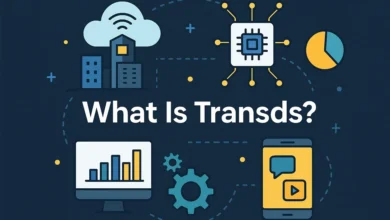The Impact of Streaming Websites on Business Models: A Look at Hura-Watch NetThe Impact of Streaming Websites on Business Models: A Look at Hura-Watch Net

In today’s digital age, streaming websites have dramatically transformed the way we consume media. Among the multitude of platforms available, Hura-Watch Net has become a significant player, attracting millions of users who are looking to stream content online. As streaming services continue to dominate the entertainment industry, it’s important to examine how they impact business models, user behavior, and the future of digital content consumption. This article explores the dynamics of Hura-Watch Net and its influence on the business landscape.
What is Hura-Watch Net?
Hura-Watch Net is an online streaming platform that offers access to a wide range of movies, TV shows, and other forms of media. Much like many other free streaming websites, it enables users to watch content without subscribing or purchasing, which has attracted a large user base looking for cost-free entertainment.
However, this model raises several questions about legality, revenue generation, and the overall impact on content creators and legitimate streaming businesses.
The Business Model of Free Streaming Websites
One of the most striking aspects of Hura-Watch Net’s model is its lack of a subscription fee. So, how does the site sustain itself? Free streaming platforms like Hura-Watch Net often rely on the following revenue streams:
Advertisements: Ads are one of the primary revenue generators for free streaming websites. They use third-party ad services, displaying ads throughout the streaming experience. While this can be a source of frustration for users, it’s a necessary component to keep the website running.
Affiliate Marketing: Some platforms incorporate affiliate marketing links that direct users to products or services. Whenever a user purchases through these links, the platform earns a commission.
Data Collection: While not all streaming websites are transparent about their practices, some collect user data, which can then be sold to third parties or used for targeted advertising purposes. This raises privacy concerns, but it’s a tactic often employed in the world of free online services.
The Legal and Ethical Considerations
Although Hura-Watch Net provides a convenient service for users, it operates in a gray legal area. Streaming platforms that don’t own the content they offer can often violate copyright laws, and users may unknowingly participate in illegal activity when accessing pirated material. This has significant consequences:
Loss of Revenue for Legitimate Businesses: Established streaming platforms like Netflix, Hulu, and Amazon Prime invest heavily in acquiring rights to content and producing original media. When users opt for free platforms like Hura-Watch Net, legitimate services lose potential customers and revenue, which, in turn, affects content creators, actors, and the broader entertainment ecosystem.
Copyright Infringement: Pirated streaming websites operate by offering content without obtaining licenses or permissions from copyright holders. While some users may not be aware of this, others may turn a blind eye to the legality issues in favor of free access. This has led to lawsuits, shutdowns, and increased government regulation aimed at curbing the spread of illegal content online.
How Hura-Watch Net Affects User Behavior
One of the most notable impacts of Hura-Watch Net is the shift in user expectations regarding media consumption. With the availability of free content, many users become accustomed to not paying for access to entertainment. This shift poses a challenge to legitimate businesses that rely on subscription fees or per-view purchases.
Erosion of the Paywall Model: Services that charge for content may find it difficult to retain users who have easy access to free alternatives. As more people look for ways to bypass paywalls, legitimate platforms are forced to adapt, either by lowering prices, offering freemium models, or focusing on exclusive content.
Changing Media Consumption Habits: The convenience of accessing content anytime, anywhere through platforms like Hura-Watch Net has reshaped the way people consume media. Users are no longer bound by TV schedules or cinema showtimes. Instead, they expect on-demand access, contributing to the rise of binge-watching and altering the traditional media distribution models.
The Future of Streaming and the Role of Free Platforms
While websites like Hura-Watch Net continue to flourish, the entertainment industry is evolving in response. Several trends and developments are worth noting:
Increased Legal Action: As governments and media companies become more aggressive in protecting their intellectual property, platforms like Hura-Watch Net face an uncertain future. Legal crackdowns on pirated content and streaming websites have led to the closure of many similar services. However, as one platform goes down, another often takes its place, creating a constant battle between content creators and pirates.
Innovation in Paid Platforms: Legitimate streaming services are innovating to retain their user base. From offering exclusive original content to creating more user-friendly interfaces and personalized recommendations, paid platforms are competing for consumer attention by providing higher value than their free counterparts.
Hybrid Models: Some legal streaming services are adopting hybrid models, offering free content with ads, while premium users can pay for an ad-free experience. This compromise allows them to attract budget-conscious users while still generating revenue.
Decentralized and Peer-to-Peer Streaming: Emerging technologies like blockchain are also starting to play a role in how media is distributed online. Decentralized platforms may offer creators and consumers more direct ways to exchange content, cutting out intermediaries and making piracy more difficult.
Conclusion
The existence of free streaming websites like Hura-Watch Net illustrates the complexity of the digital media landscape. While they offer undeniable convenience and cater to a growing demand for free content, they also raise critical ethical, legal, and business questions. As media consumption habits continue to evolve, both legitimate businesses and illegal platforms will have to adapt to the changing tides of user expectations, technological advancements, and regulatory frameworks. For users, the choice between paying for content or using free alternatives may seem simple on the surface, but the broader implications for the entertainment industry are far-reaching.



